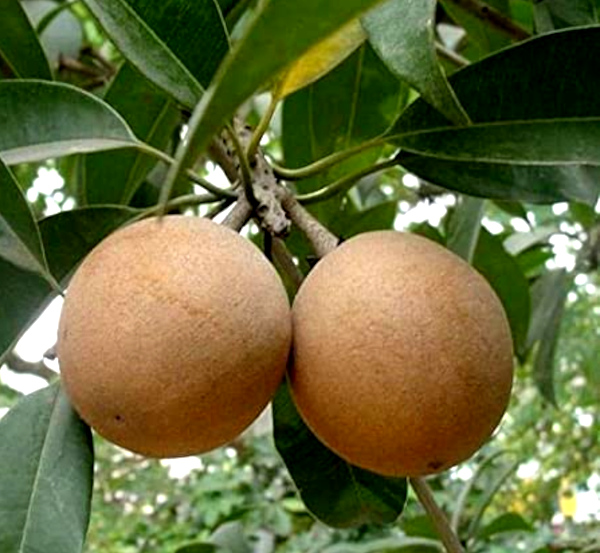A consignment of Dahanu Gholvad sapota (naseberry) has been exported to the United Kingdom from Maharashtra’s Palghar district, providing a major boost to shipments of Geographical Indication (GI) certified products from India.
The Maharashtra Rajya Chikoo Utpadak Sangh holds the GI certification for Gholvad Sapota and the fruit is popular for its sweet and unique taste. The unique taste is believed to be derived from calcium rich soil of the Gholvad village in Palghar district.
Around 5,000 hectares of land are under sapota cultivation in Palghar district. Of the 5,000 farmers who grow sapota, 147 farmers are authorized GI users.
The Dahanu Gholvad Sapota, sourced from the authorized GI users, were sorted and graded from the Agricultural and Processed Food Products Export Development Authority (APEDA)-assisted and registered packhouse facility at Kay Bee Agro International Private Limited, Tapi in Gujarat. The firm also exported the consignment.
Currently, demand in the importing countries is mainly from the ethnic population. Dr M Angamuthu, Chairman, APEDA (Agricultural and Processed Food Products Export Development Authority) said that export can increase manifold if the mainstream buyers are also targeted as sapota can be grown throughout the year unlike other fruits.
No competition from outside
APEDA has been focusing on the promotion of exports of GI products, which are unique with intrinsic value. There is practically no competition from outsiders for these products and they offer good potential for exports.
Sapota is grown in Karnataka, Gujarat, Maharashtra, Tamil Nadu, West Bengal and Andhra Pradesh. Karnataka is the largest grower, followed by Maharashtra. It can be used in fruit salads, blended into milk or yogurt as a smoothie or processed to make jam.
Earlier this month, a consignment of 2.5 tonnes of GI certified Banganapalli and Survarnarekha mangoes sourced from farmers in Krishna and Chittor districts of Andhra Pradesh were exported to South Korea, which has signed a deal to buy 66 tonnes of mangoes this season.
APEDA promotes exports of agricultural and processed food products by providing assistance to exporters under various components of its scheme such as Infrastructure Development, Quality Development and Market Development. In addition, APEDA also conducts international buyer-seller meets (BSM), virtual trade fairs with importing countries to promote agricultural & processed food products.
Apart from this, the Department of Commerce (DOC) also support exports through various schemes like Trade Infrastructure for Export Scheme (TIES) and Market Access Initiative (MAI).
Source: The Hindu Business Line
You may also like
-
Trade Connect E-platform For Exports Is Single Window, Fast, Accessible And Transformational: Shri Piyush Goyal
-
Dot Simplifies Approval Processes For Telecom Licenses And Wireless Equipment
-
Coal Production and Supply Trends on Positive Trajectory
-
Union Minister To Release Booklets On Promotion Of Indigenous Species & Conservation Of States Fishes
-
2nd India-Japan Finance Dialogue held in Tokyo on 6th September, 2024
